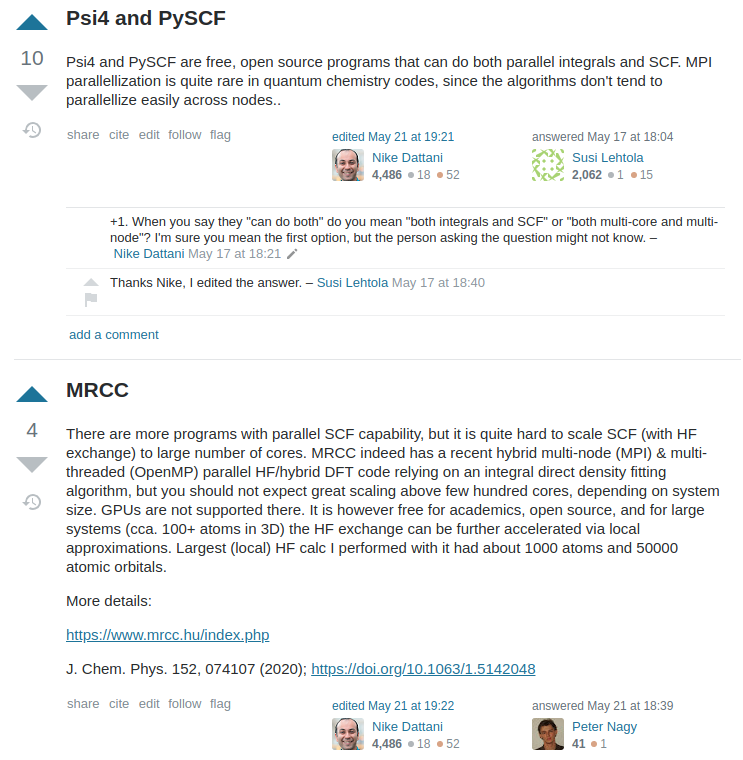My favorite thread on this site so far is this one: Is there a free package with robust CASSCF functionality?, because six different people chipped in, and somehow many of us decided to follow the same format, even though there was no written rule. I could easily have listed several programs in my answer, but I decided to focus on one: This meant more effort into quality rather than quantity, but also gave others better opportunity to participate, which I think is good "sportspersonship" (and incidentally raised our average number of answers per question 😊).
When similar questions came up, I encouraged people to follow this type of format, but did not say anything further when they decided to reject the suggestion.
However, after seeing this:

I think we should decide how our community wants to treat this type of situation. Does the 4 upvotes for MRCC and 10 upvotes for Psi4+PySCF mean that the community is less in favor of MRCC than Psi4 or PySCF? Or could it mean that 4 of us like the suggestion of MRCC, 9 people like the suggestion of PySCF and 1 person likes the suggestion of Psi4?
- I therefore wonder whether or not we would like to encourage answers like these to be split, so that each answer has just one suggestion? This has worked well for the following:
Tyberius wrote in one of these cases: "I would say a question like this will work best if people stick to one framework per answer, so just doing Monte Carlo for now is perfect." which I 100% agree with.
- If we do choose to stick to this format for certain questions like these, do we want to encourage each person to provide just one answer? All these questions have something in common, which is that a large number of people could easily list a large number of items, but so far most of us have chosen not to "hog" the whole question and instead to focus on quality and in-depth explanation rather than quickly listing as many examples as we know. For some questions like this one of mine the user can specify that they would be happy to see multiple topics per answer or one topic per answer (I did this because I knew it was a difficult question that likely only someone specializing in basis-sets would be able to answer, so limiting them to just listing one basis-set family would not make sense). However in the above examples that followed the proposed format, most people that answered could easily have given several other suggestions too, but refrained from doing so to give others a chance.